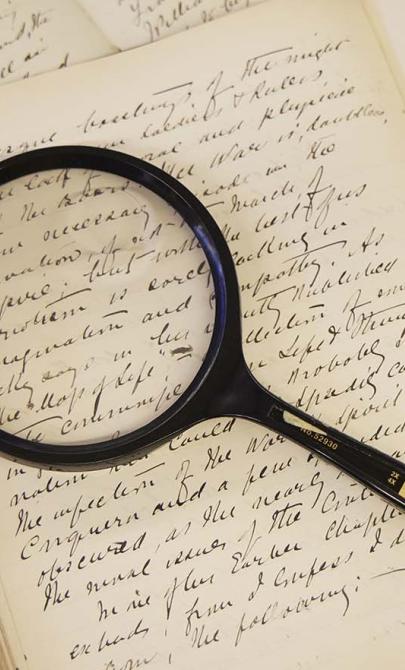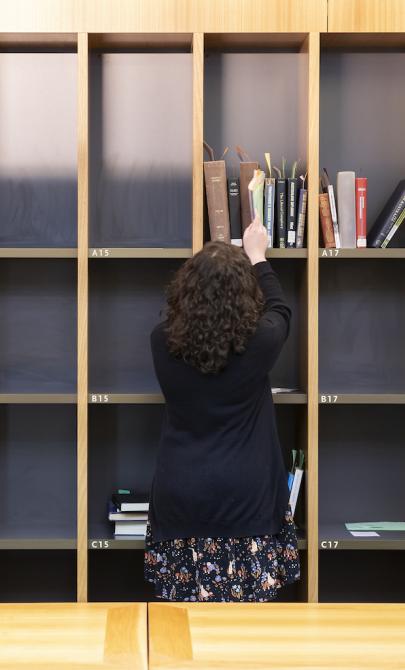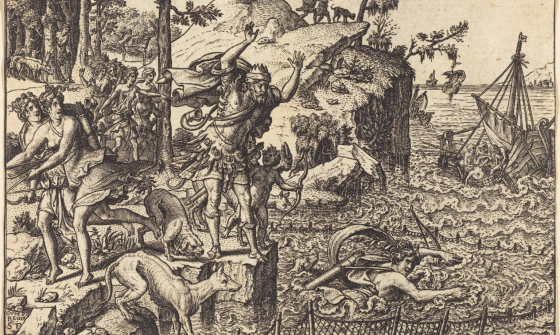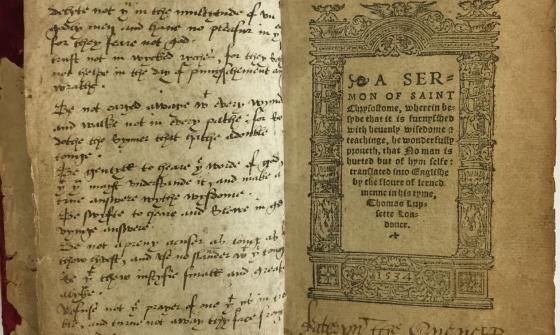British Radical Pamphlets
Key items in the collection
Highlights from this collection demonstrate its historical significance and variety.
The collection acquired from Guernsey Books includes around 3,200 pamphlets, leaflets and issues of periodicals. Apart from a set of Fabian Tracts (1884–97), most items were published between 1900 and 1970. The majority are British imprints, including translations of European writers such as:
- VI Lenin
- Rosa Luxemburg
- Karl Marx
- VM Molotov
- Joseph Stalin
- Leon Trotsky
- A.Y. Vyshinsky.
There are also a small number of European, American and Australian imprints.
The collection represents a wide range of political parties, pressure groups and interest groups. Many publications are from the Communist Party, Co-operative Party, Co-operative Union Ltd, Labour Party and Liberal Party. Other organisations represented include:
- Anglican Pacifist Fellowship
- Anglo–Russian Parliamentary Committee
- British–Czechoslovak Friendship League
- British–Yugoslav Association
- Campaign for Nuclear Disarmament
- Fabian Society
- Friends of Soviet Russia
- League for Democracy in Greece
- National Council for Civil Liberties
- Political Freedom Movement
- Russia Today Society
- Socialist Medical Association
- Socialist Party of Great Britain
- Union of Democratic Control
- University Labour Federation
Although most of the publications are left-wing, the collection also includes material from far-right organisations such as:
- the National Front
- National Pure Water Association
- Racial Preservation Society
- the Yorkshire Campaign to Stop Immigration.
One of the strengths of the collection is a substantial, though incomplete, set of Liberal Party leaflets from 1906 to 1930. There is also a long series of Liberal Party pamphlets.
Many pamphlets are anonymous and undated, as is common for this format. Notable and prolific contributors include:
- HH Asquith
- Aneurin Bevan
- Emile Burns
- GDH Cole
- Maurice Dobb
- R Palme Dutt
- W Fox
- William Gallacher
- Victor Gollancz
- Hewlett Johnston
- Harold Laski
- David Lloyd George
- Herbert Morrison
- Philip Noel-Baker
- Harry Pollitt
- DN Pritt
- William Rust
- Herbert Samuel
- Gordon Schaffer
- Bernard Shaw
- Sir John Simon
- Philip Snowden
- Barbara Ward
The subject matter is wide-ranging. Topics include:
- Arms trade
- British foreign policy
- Capitalism
- Coal industry
- Colonies
- Communism
- Co-operative movement
- Great Depression
- Economic planning
- Education
- Employment policy
- Factory regulation
- Food
- Free trade and protection
- House of Lords
- Indian independence
- Labour Party
- Land reform
- Liberalism
- Marxism
- Nazi Germany
- Nuclear disarmament
- Poverty
- Prevention of war
- Prices and profits
- Public health
- Russian Revolution
- Socialism
- Soviet Union
- Spanish Civil War
- Strikes
- Taxation policy
- Trade unionism
- Transport
- Treatment of Jewish people
- Wages
- Women’s suffrage
- World War II and peace negotiations
The Left in Britain collection consists of 1,515 microfiche and 152 microfilm reels. The pamphlets, reports, leaflets, journals and other publications included in the collection were produced between 1961 and 1988 by around 50 British socialist, communist, anarchist and other left-wing parties and organisations.
Organisations represented in the collection include:
- Anarchist Black Cross
- Anarchist Communist Federation
- Association of Communist Workers
- Campaign for Nuclear Disarmament
- Centre for Socialist Education
- Communist Party of Britain (Marxist–Leninist)
- Independent Labour Party
- International Communist League
- International Marxist Group
- International Socialists (later the Socialist Workers Party)
- May Day Manifesto Group
- Militant
- Revolutionary Workers Party
- Socialist Organiser
- Socialist Society
- Troops Out Movement
- Workers Power Group
Most publications are anonymous, but some are written by prominent political and literary figures. These include:
- Tariq Ali
- Tony Benn
- Paul Foot
- Ted Grant
- Ernest Mandel
- Ralph Miliband
- Peter Taaffe
- E.P. Thompson
- Raymond Williams
The Left in Britain microfilm includes journals such as International Socialism, Militant, Peace News, Red Flag, Socialist Leader and Socialist Worker.
About the British Radicals
In the second half of the 19th century, the Radicals were a strong political force in Britain. Closely connected to the Liberal Party and Nonconformist churches, they opposed military build-up, foreign wars and the expansion of the British Empire. Instead, they supported:
- Free trade
- Expanding the right to vote
- Reducing the power of the House of Lords
- Separating church and state by disestablishing the Church of England
Shifting priorities after 1870
After 1870, many Radicals moved away from a purely hands-off economic approach (laissez-faire). Leaders like Joseph Chamberlain began to call for:
- Free public education
- Stronger factory regulations
- Slum clearances
- Breaking up large landholdings
When most of the Whigs left the Liberal Party after 1885, these progressive ideas gained more influence.
Radical reforms under Liberal leadership
During the Liberal government of 1906–1915, Radicals, led by David Lloyd George, played a key role in:
- Reducing the power of the House of Lords
- Disestablishing the Church in Wales
- Introducing old-age pensions and national insurance
- Making progress towards Irish Home Rule
The rise of socialism and labour politics
At the same time, new socialist and labour groups emerged in Britain, including:
- Social Democratic Federation (1881)
- Fabian Society (1884)
- Independent Labour Party (1893)
- Labour Representation Committee (1900), renamed the Labour Party in 1906
- Communist Party (1920)
The Liberal Party became deeply divided during and after World War I. By 1922, it had been overtaken by the Labour Party as the main opposition force.
A broader meaning of radicalism
After this shift, radicalism was no longer tied to a single party. Instead, it became a broader outlook shared by individuals across the political spectrum. These included:
- Communists and socialists
- Trade unionists and civil libertarians
- Feminists and peace activists
- Supporters of Indian independence
- Critics of the British Establishment
Background to the collection
The Library’s principal collection of 20th-century British radical pamphlets was purchased in 1972 from Guernsey Books of St Peter Port, Guernsey.
In 1974, the Library acquired a complementary collection from Harvester Press of Hassocks, Sussex. This collection, titled The Left in Britain, comprises microfilms and microfiche of pamphlets, periodicals and other publications produced by radical organisations.
Biennial or annual supplements were added from 1975 to 1988.
There are 16 volumes, mostly containing Liberal Party leaflets and pamphlets. The remainder of the publications is housed in 60 boxes. The materials have been catalogued as a collection but not individually. A catalogue produced by Guernsey Books — copies of which are shelved with the collection — lists all items by author, or by title for anonymous works. The pamphlets and other publications can also be found in the Library’s catalogue.
The Left in Britain microfilm and microfiche are held in the Newspaper and Microcopy Collection. The microfiche is divided into two series. The first two fiche in each series contain a bibliographical guide with chronological, title and author indexes. Each biennial or annual supplement also begins with a bibliographical guide. The pamphlets and other publications are also available.
The microfilm of journals, microfiche of pamphlets, leaflets and other ephemera and the bibliographical guide to the 1983 supplement, held in paper form, have all been catalogued separately.
This guide was prepared using these references:
- John W Derry, The radical tradition: Tom Paine to Lloyd George, Macmillan, London, 1967.
- Guernsey Books, 20th Century British radicalism, Guernsey Books, St Peter Port, 1972.
- Maureen Murr (comp.), The Left in Britain during 1983: a bibliographical guide, Harvester Microform, Brighton, 1984.
- John Spiers, The left in Britain: a checklist and guide, with historical notes to 37 left-wing political movements and groupings active in Britain between 1904-1972, Hassocks, Sussex, Harvester Press, 1976.







